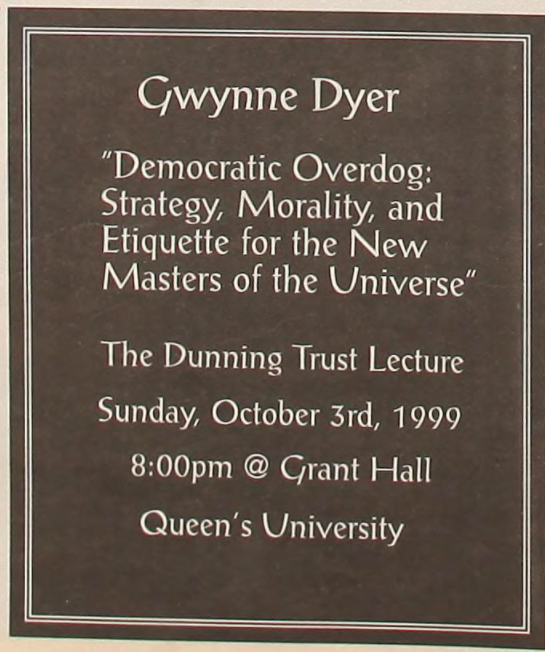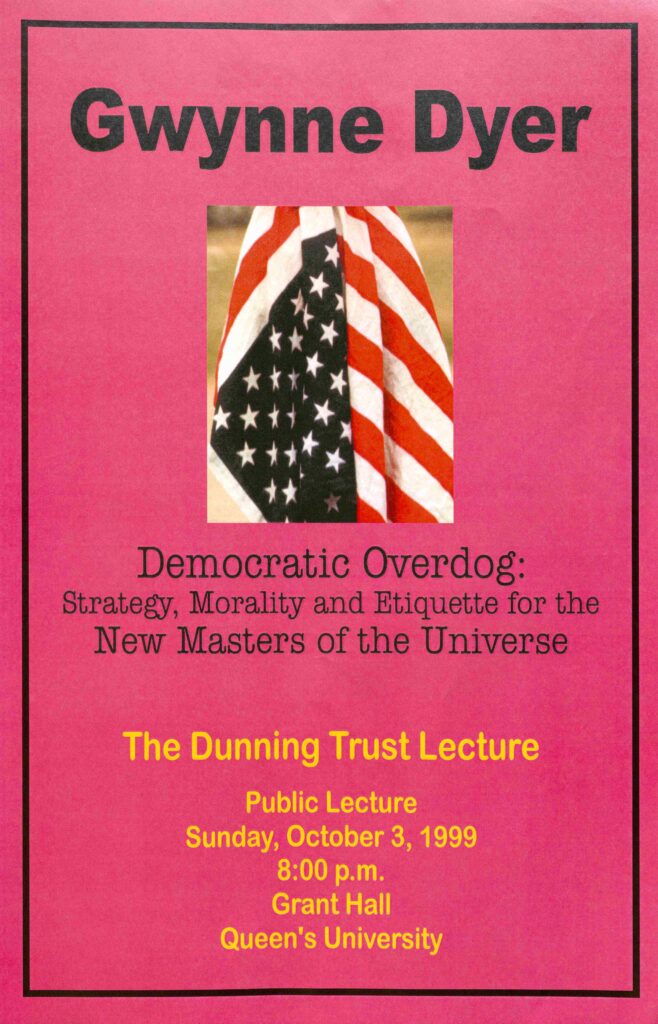
Gwynne Dyer is a freelance journalist, columnist, broadcaster, and lecturer, originally trained as a historian. He has served in the armed forces of three nations and has held appointments to the Royal Military College, Sandhurst and Oxford University. He writes a twice-weekly column that is published in several languages by approximately 175 papers in 45 countries.
In his lecture, Dyer outlined a new attitude toward using force in the world in defense of justice for Canada: “with the UN if possible, but not necessarily with the UN.” He then traced two genealogies of this willingness to spurn the UN and join what he called a “posse of international vigilantes.” First, after the emergence of humanitarian intervention in the post-Cold War world, as citizens of industrialized countries came to see human suffering in a new light, and demand that their governments take action. The willingness to intervene grew after a post-hoc UN resolution made NATO’s intervention in Kosovo legal. Second, after World War II, fear of a recurrence motivated an international agreement that borders were sacred and absolute. Only later did the Convention on Genocide create a legal obligation for states to intervene to stop genocide. As the world gradually moved towards a world centred on human rights law in addition to international law, the approach to absolute borders would have to be reformulated to protect citizens against tyranny: “what we are trying to do is move from a world where international law protects governments to a world where international law protects people, and that includes protecting people from governments.”
Dyer’s lecture was held on October 3, 1999.
